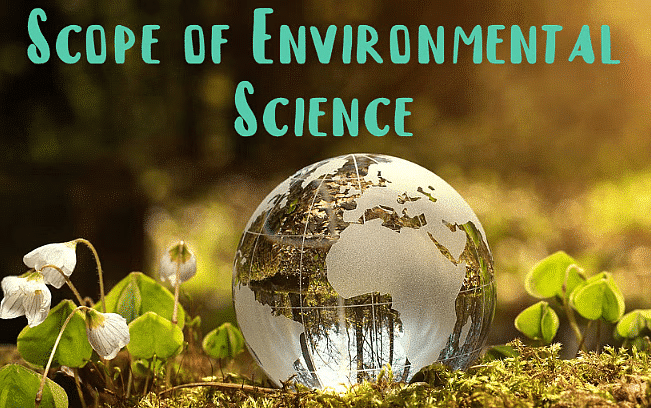Notes: Concept & Scope of EVS | EVS & Pedagogy Paper 1 for CTET & TET Exams - CTET & State TET PDF Download
Environment: Water, Air, Earth, Animals, Vegetation, and Humans all combined to form the environment. The proportion of each of these elements is done in such a way to form uniformity on earth.

Environment word is formed from a French word called ‘Environ’ which means complete surroundings.
Its Definition
The environment means the surrounding external conditions which influence the development or growth of people, animals or plants; their living or working conditions, etc. Some important definitions of the environment are: - Ross-Environment could be termed as an external force that affects or influences us.
- Douglas and Holland- ‘The term environment is used to describe, all the external forces, influences, and conditions, which affect the life, nature, behaviour and the growth, development and maturity of living organisms.’
Kinds of Environments:
Generally, the environment could be of three types that affect the personality of humans:1. Natural or Physical- It refers to geographical climate and weather or physical conditions wherein individual life. The human race is greatly influenced by climatic conditions. It constitutes the sky, air, water, vegetation, elements under the earth’s surface, and organisms.
- The people belonging to European countries are white while those of Africa are of black complexion.
- The physical environment also affects an individual’s physique.
- The working efficiency of a human also depends on climatic conditions.
2. Social- An individual’s social, economic, and political condition comes under his social environment. It constitutes groups, communities, society, committees, and all other kinds of institutions formed by human relationships.
3. Cultural or Psychological- Psychological environment helps us to understand an individual’s personality. All the rituals, customs, morals, and legal and behavioural epitomes of society comes under this category.
Environmental Structure
The environment includes both living and non-living organisms. So, its structure is both physical and biological.1. Physical Environment
It is classified into three:
- Solid which represents the Lithosphere (earth)
- The liquid represents the Hydrosphere (water component).
- Gas or the Atmosphere.
They could be further subdivided into smaller units such as plateaus, coastal, mountains, glaciers etc.
2. Biological Environment
It consists of:
- Flora (animals)
- Fauna (plants)
Thus, all the organisms in this biotic environment work together to form their social groups and organization at various levels. This process gives rise to the economic environment.
Scope of Environmental Studies
The initialization of thinking towards the environment has occurred due to the occurrence of some major incidents. Today, when environmental hazards have put humans into serious trouble only the areas of learning environmental education are increasing. Its scopes are summarized as follows:- Preservation and Protection of Natural resources and their problems include water, soil, forests, minerals, electricity, and transportation.
- The study creates awareness among the people to know about various renewable and nonrenewable resources in the region.
- It also provides necessary information about the richness of biodiversity and the dangers to the species of plants, animals, and microorganisms in the environment.
- It studies varieties of flora and fauna and their protection.
- The study helps us to understand the causes and consequences due to natural disasters (floods, earthquakes, landslides, cyclones, etc.,) and pollution and measures to minimize the effects such as radioactive pollution, noise pollution, soil, water, and social pollution.
- Human-Environment relationship.
- Social Issues are related to Environment.
- Policies and Laws related to Environmental Issues.
- Environmental Preservation, Protection, and Improvement.
Hence, it is important now to protect our environment by utilizing the available resources and building a sustainable future for our coming generation.
|
19 videos|109 docs|36 tests
|
FAQs on Notes: Concept & Scope of EVS - EVS & Pedagogy Paper 1 for CTET & TET Exams - CTET & State TET
| 1. What is the scope of Environmental Science in CTET and State TET exams? |  |
| 2. Why is Environmental Science important for CTET and State TET exams? |  |
| 3. What are some key concepts covered in Environmental Science for CTET and State TET exams? |  |
| 4. How can teachers prepare for the Environmental Science section of CTET and State TET exams? |  |
| 5. What are some common topics that are frequently asked in the Environmental Science section of CTET and State TET exams? |  |
|
19 videos|109 docs|36 tests
|

|
Explore Courses for CTET & State TET exam
|

|

















